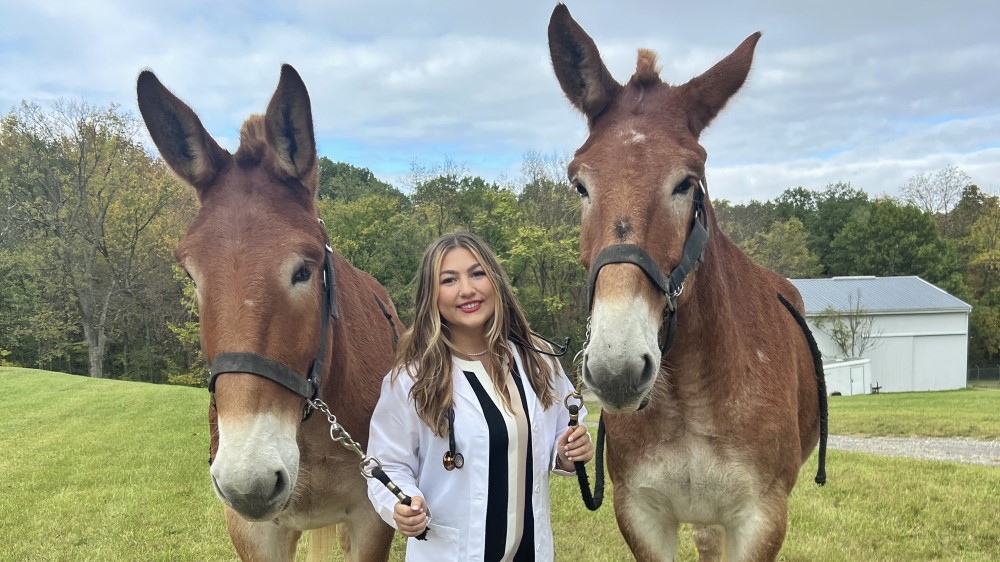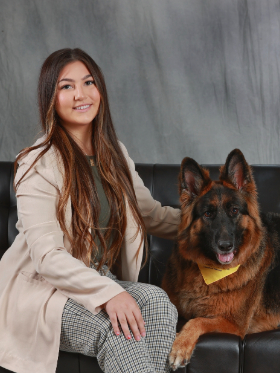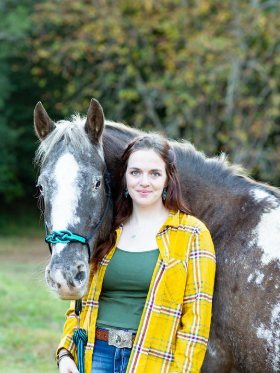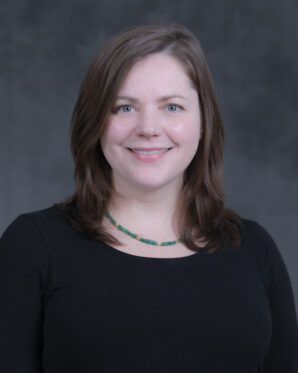
Merck Animal Health Veterinary Student Innovation Awards
Overview
This award is designed to recognize graduating seniors at each veterinary school accredited through the American Veterinary Medical Association in the U.S. and Canada. Awards are given to students in good academic standing who have demonstrated innovation, entrepreneurship, and creative forward-thinking in the development of a project or product that inspires others within the veterinary profession.

Merck Animal Health, in partnership with the American Veterinary Medical Foundation (AVMF), has established the Merck Animal Health Veterinary Student Innovation Awards.
Merck Animal Health, in partnership with the American Veterinary Medical Foundation (AVMF), has established the Merck Animal Health Veterinary Student Innovation Awards.
Congrats, 2024 Merck Animal Health Veterinary Student Innovation Award recipients!

University of Missouri
Davina D'Angelo
First place winner
Davina created and refined a 3d printed cystotomy spoon after assisting on several cystotomy surgeries and realizing that veterinarians did not have access to bespoke tools for the procedure. Davina designed and refined the spoon with the aim of producing a tool that improves the outcome of cystotomy procedures. There are several published works in response, and Davina’s creation addresses a critical absence in veterinary surgical equipment.
“With the support of this award, I aim to advance my ongoing proof-of-concept study by transitioning the tool from a 3D-printed prototype to surgical-grade stainless steel. It will be a pivotal step in the development and refinement of this transformative tool. I am immensely grateful for the support of the AVMF as I strive to transform the cystotomy surgical procedure and improve outcomes for veterinary patients.”

NC State University
Briana Blackwelder
Second place winner
Briana started a business called, “Equine Muscle Works” and as a reflection of their entrepreneurial talents, it now has three employees and clients across several states. She is currently working with some of the best equine specialists in the world with the goal of developing an affordable equine diagnostic tool to detect and classify lameness. Briana receives incredible praise from their program director stating, “Briana is poised to change the world of equine medicine”.
“There are no perfect words to thank you enough for believing in me as I prepare to enter the world of veterinary medicine. By supporting me, I can in turn better support others creating a ripple effect that will persist for years to come. The AVMF is truly making a difference in the lives of so many. On behalf of myself and the others you have helped, thank you.”

University of Wisconsin - Madison
Leah Owens
Third place winner
Leah is responsible for the design, development, and implementation of the Vertebrate Eukaryotic Endosymbiont and Parasite Analysis (VESPA), a DNA sequencing-based tool that detects helminths and protozoa in complex samples. An integral part of the UW-Madison community, she has received several awards, including the Aurora Pharmaceuticals Promising Veterinary Student Competition Award, has also authored 10 publications.
“As a student with a background in molecular biology and an interest in a research career, this award feels very meaningful. It shows me that, along with clinical excellence, well-being, and service, the AVMF and Merck also value basic science research. It means so much to me to have this critical, but sometimes overlooked, facet of veterinary medicine chosen for recognition via my work.”
Past Award Recipients
2023 award recipients
2023 Merck Animal Health Veterinary Student Innovation Award
Merck Animal Health, in partnership with the American Veterinary Medical Foundation (AVMF), has established the Merck Animal Health Veterinary Student Innovation Awards.
2022 award recipients
2022 Merck Animal Health Veterinary Student Innovation Award
Merck Animal Health, in partnership with the American Veterinary Medical Foundation (AVMF), has established the Merck Animal Health Veterinary Student Innovation Awards.